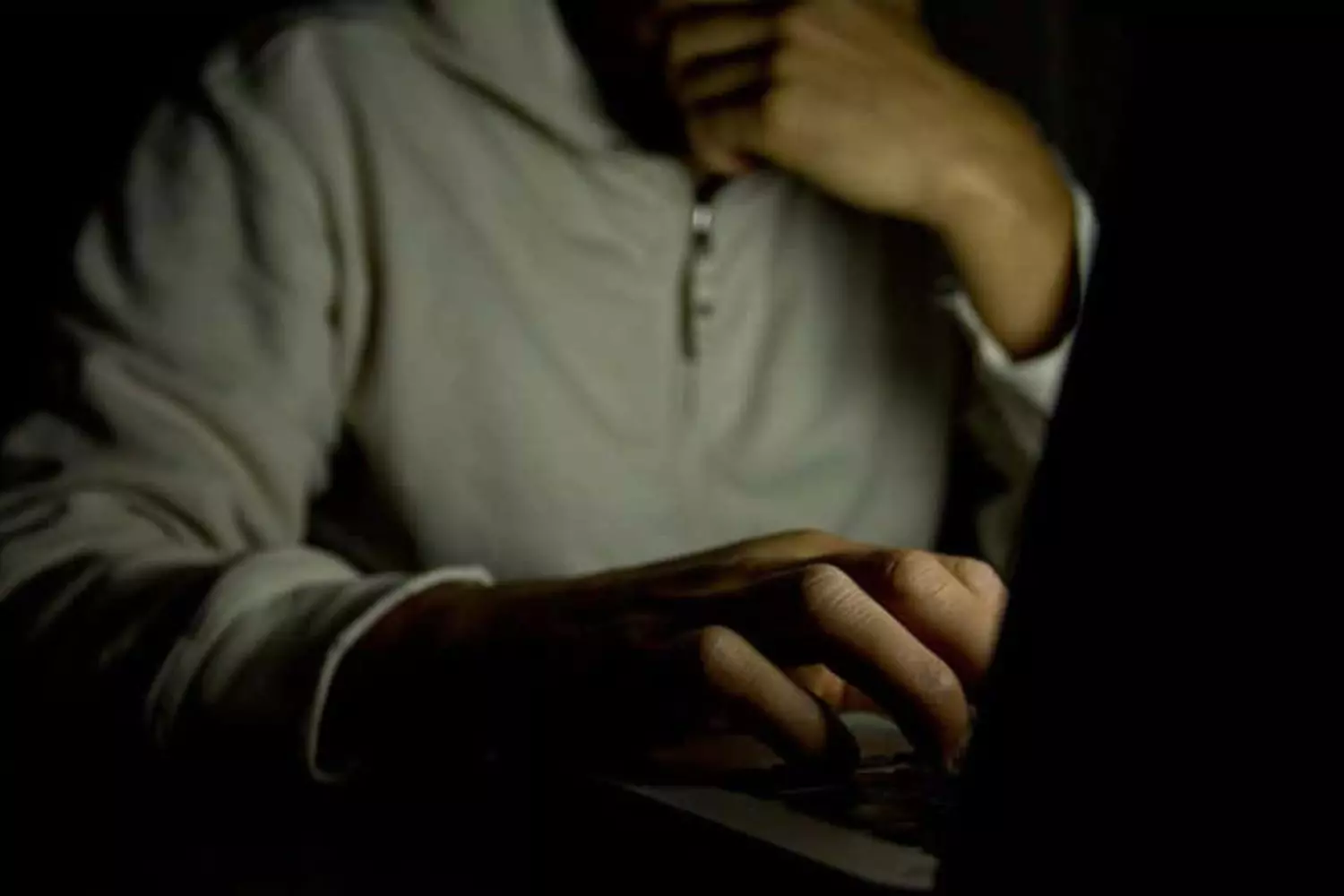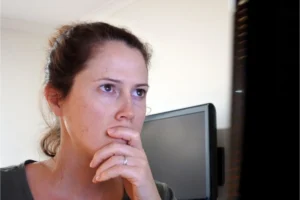Estimated reading time: 10 minutes
Teens exposed to pornography can come as a shock for parents. What do you do?
Perhaps your heart is racing, your breathing is irregular, and you can’t concentrate. Maybe, like me, you’ve cried and screamed in anger, sadness, or depression. Maybe you’ve collapsed from exhaustion or are overwhelmed and want to quit this parenting business. I get it. It’s a lot.
Let me reassure you. You are not alone. I’ve been there. So have many parents before you.
Table of contents
My kid was exposed to pornography! How could this happen?
“What?! What did you say?”
“I was watching porn and . . .” My fourteen-year-old son’s mouth was moving, but my brain couldn’t comprehend the words escaping it. My husband and I had been on a walk when we saw him outside our front door, crying hysterically and motioning for us to come home quickly. He was more distraught than I’ve ever seen him. He was in full-blown panic mode.
Did he just say he was watching porn? We stood in our yard, surrounded by green grass, blue skies, and vibrant flowers. But my world went dark.
In the following hour, I learned my son had watched pornography periodically the previous year. He confessed because someone was extorting him. A fake warning appeared on his screen—pay money or be arrested—prompting him to tell his dad and me.
The dark secret of pornography addiction in children
That discovery opened my eyes to an underground world I didn’t know existed and motivated me to add filters to devices and update rules that were apparently too lenient. But, it wasn’t the end of my son’s porn use.
A year and a half later, at age sixteen, he confessed again, this time divulging the full story. He had been looking at pornography since he was nine or ten, and was addicted.
At the time, I questioned my parenting skills. While I had known pornography existed, I thought not my kid. My husband is a pastor. We raised our children in a Christian home and homeschooled them. If ever any child had the best opportunity to make biblical choices, it was my son. And yet, he was curious.
That’s the rub. Most children stumble onto pornography by accident, but many search for it out of curiosity. Unfortunately, the power the images hold is incredible, and what may start as simple inquisitiveness can become a raging battle.
Between those two confessions and for several years afterward, my husband and I walked through his problems and the ramifications that spilled into our lives, alone. I only confided in one out-of-state friend, unable to reveal this secret to other friends, family, or church members.
While we scrambled to help our son, I experienced all the emotions—anger, sadness, pain, betrayal, shame, and guilt. I needed help. I longed for another mom who had been in my position to put her arms around me and let me cry, shout, and process.

Keep Growing Into the Best Parent for Your Kids!
Seven steps to help you and your child
Many parents experience the same emotional turmoil. They desire support and practical help but can’t turn to those closest to them. The shame, guilt, and stigma stop them from disclosing their dilemma. If you’ve learned your child has seen pornography, I’d like to offer these seven steps, based on my personal journey and experience helping other parents.
1. Pause and pray
When we encounter a traumatic situation, our instinct is to resolve it as quickly as possible. However, we should not address the issue until we’re mentally, emotionally, and spiritually ready. If your child is dealing with a pornography problem, it didn’t develop overnight, and it won’t be fixed overnight. It’s okay to hit the pause button. Breathe.
If your child confessed or you’ve already had discussions that didn’t end well, tell them you’d like to take a break from the conversations while you gather your thoughts and pray.
Seek God’s guidance. Each circumstance is unique and requires a unique response. Lean on God’s wisdom. Trust Him to lead you.
2. Process
Take the time to internalize the information you’ve obtained and allow your emotions to settle. Process your feelings.
During this period, analyze the facts, what you know and what you don’t know about pornography. For example, you may have learned your son or daughter saw pornography while at a friend’s house. Do you know if this was their first exposure or one of many, how it made them feel, and how they responded? Gather some non-threatening questions to ask your child at the appropriate time. Try not to make assumptions. One encounter with pornography does not mean your child is a porn addict. However, it’s a legitimate concern.
Do you know the long-term effects of pornography on the brain and how porn use affects future relationships? Do you understand the types of pornography available? Research the dangers to help your child understand their choices. Be ready to discuss God’s design for sex and how pornography impedes sexual intimacy.
3. Protect devices
Pornography is easily accessible and children can stumble onto it accidentally. Therefore, all households should utilize filters on Wi-Fi routers and each device, along with parental controls. Filters are like seatbelts. They help keep us safe. However, they are not foolproof, so the best line of offense and defense is ongoing conversations. The goal is to help our teens make healthy choices to stay away from pornography, now and when they are adults.
4. Communicate
When you discover your kid has been exposed to pornography, express your unconditional love. Ask questions and listen to the answers. Value your child. Avoid shaming or blaming. Use appropriate body language.
Make the initial conversation brief. The purpose is to collect information about the exposure and remind them you are on their side.
Schedule times to check in with your child, daily at first. As the discussions progress, re-evaluate check-in times and length. Don’t be discouraged if your child is unresponsive. Keep trying. Regular one-on-one conversations show you care and help break down barriers. The objective is for them to trust you and eventually be comfortable opening up.
5. Evaluate boundaries
Assess your boundaries and update them as needed. This list is not exhaustive, but rather a starting point.
Consider these options:
- no devices in bathrooms or bedrooms
- leaving devices in parents’ bedroom every night
- shutting off the Wi-Fi at a particular time every night
- screen time limits
- not leaving your child home alone
- deleting social media apps
- evaluating friendships and time with friends
- what activities may be triggers, and daily routine
Remind your child that boundaries are in place for their protection because you love them. If a child is mature enough, ask them what they believe are appropriate boundaries. They are more likely to follow the rules when consulted.
6. Maintain self-care
Prioritize your physical, emotional, and spiritual care. A healthy parent is more effective. Rest, eat well, exercise, and take mental breaks. Pray and read Scripture.
7. Find a friend
I encourage you to find one confidante. When we disclose our problems to a trusted friend, counselor, or pastor, they can listen, pray, evaluate, and offer practical advice when necessary. They share our burden and offer hope. You Are Not Alone
Pornography is pervasive. Many parents are learning their kids have been exposed to, or are watching, pornography regularly. While this is troublesome and should make us pay attention, we don’t have to journey through the process on our own.
Find a support system. And remember, nothing is new or shocking to God. He cares about you and your child, and He is walking this road with you both.
The danger of my kid being exposed to pornography
If we’re really honest with ourselves, the topic of pornography is awkward. As parents, we grow even more uneasy when we think about our conversations about pornography with our teenagers. Do you really want to know if your teen watches pornography? It grows more difficult when we realize how much our teens are truly exposed to pornography.
Many parents would rather not address this issue for fear of what they might find. But equipping your teen to deal with the raw evil of pornography begins by admitting that the problem exists. First, you need to look in your community and possibly in your own home to begin the conversation with your teen.
What to do when your teen is exposed to pornography
Begin talking with your teen by asking, “What do you know about pornography?” While not every teen struggles with the temptation to view pornography, nearly every teen experiences exposure to pornography. In our digital world, it’s nearly impossible to spend time online without coming across sexually explicit content. Whether your teen is simply curious about porn or already addicted to it, he needs you to be courageous enough to enter the battle with him.
Pornography is often described as a private choice, which results in few immediate external consequences. It’s easy for teens exposed to pornography to think there’s no harm. However, just because no one gets pregnant or contracts a sexually transmitted infection, pornography is anything but harmless.
As parents, we need to communicate this message to our kids.
Children exposed to pornographic images often link their first experience of sexual arousal to pornography. The damage cannot be overstated. Early exposure to pornography begins an unhealthy foundation on which teens learn about their sexuality. This context dehumanizes men, women, and the act of sex itself.
It’s undeniable. Pornography is highly addictive. And pornography subscribes to the law of diminishing returns. This means that what created arousal last month no longer excites. In fact, it only prompts the desire for increasingly more erotic material.
Covenant Eyes Can Help You Quit Porn for Good
Care about the boundaries
To start, it’s important to realize that the battle for your teen’s purity will not be won with safeguards alone. For some teens exposed to pornography, restrictions provide a challenge rather than an appropriate boundary. Part of the way pornography negatively impacts the brain is by viewing sexually explicit content as a reward rather than sin. In some cases, filters and accountability software can serve as a thrilling obstacle course with an incentive at the finish line.
Even if your teen’s computer has protective software, they can find other ways to access pornography. In addition to safeguards and boundaries, the most effective tool in helping your teen battle this powerful temptation is your relationship with him. Your relationship needs to include discussions on God’s design and intent for sexuality. If your teen understands the beauty of God’s plan, then he can recognize the harmful counterfeits.
Stay connected
Teens exposed to pornography might not realize it, but it can be a private, embarrassing struggle. And the enemy uses pornography to sever relationships. Creating isolation, pornography addiction enforces messages of worthlessness and shame. Teens involved in porn often believe God could never love or use them. They feel dirty and compromised but find they’re incapable of stopping.
Your teen needs to know that they aren’t the only one struggling.
As difficult as it may be, confronting him or her with love and honesty helps to tumble the walls of shame, isolation and helplessness. Your conversations about pornography should include a healthy, ongoing dialogue about sexuality. Remind your teen that his or her sexuality is not bad. It’s normal for him or her to have an interest in sex. Reinforce the idea that temptation is not a sin.
Instead, sin occurs when we act upon our temptation. No temptation has overtaken you that is not common to man. God is faithful, and he will not let you be tempted beyond your ability, but with the temptation he will also provide the way of escape, that you may be able to endure it, says 1 Corinthians 10:13.
However, explain that a battle rages for his heart and his mind. Walking with your teen may include appropriately sharing some of your own struggles and failures. Affirm your unconditional love for your teen and share about God’s grace and forgiveness.
Final thoughts on teens exposed to pornography
Realize that the battle with pornography has the potential to unleash some powerful truths in the life of your teen. Jesus said that He came not to validate the healthy, but to heal the sick. God’s Spirit envelops the weak and the poor. The church has a tendency to brush aside sin and focus on how talented, beautiful and capable children are. Your teen needs to understand that he is incapable of conquering sin without the powerful presence of God, and pornography might be the struggle that brings that truth home.
















